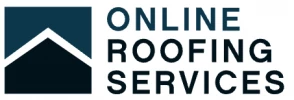Late updated: 03 Jun 2025 09:06
Written by: Oliver Bennett
The Benefits Of Using Zinc Roofs In The UK: A Sustainable Choice
Exploring roofing options can be daunting, given the variety of materials available. In the UK, zinc roofs are gaining traction for numerous reasons. Zinc roofing provides exceptional durability, requiring minimal maintenance while offering unparalleled resistance to corrosion and weathering. This makes it a perfect choice for the UK's unpredictable weather conditions.
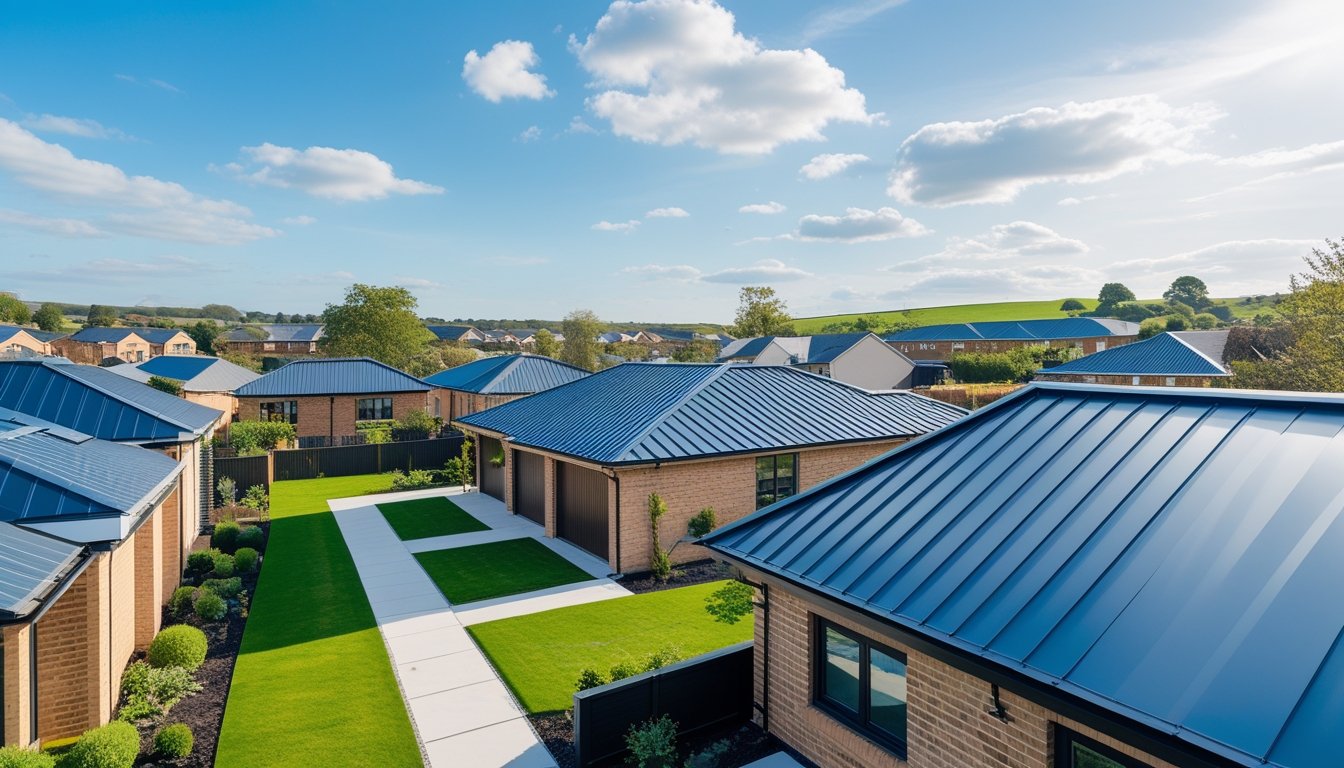
One notable benefit of zinc roofing is its lightweight nature, enhancing structural safety without compromising strength. The aesthetic appeal of zinc roofs also deserves mention, as they bring a modern yet timeless look to properties. Additionally, zinc is an eco-friendly option, being both sustainable and recyclable.
With these compelling advantages, it's easy to see why zinc roofs are becoming popular in the UK. They combine functionality with environmental responsibility, making them a wise investment for the future.
Key Takeaways
- Zinc roofs are durable and low maintenance.
- They offer protection against corrosion and weathering.
- Zinc roofing is eco-friendly and sustainable.
Key Advantages Of Zinc Roofs In The UK
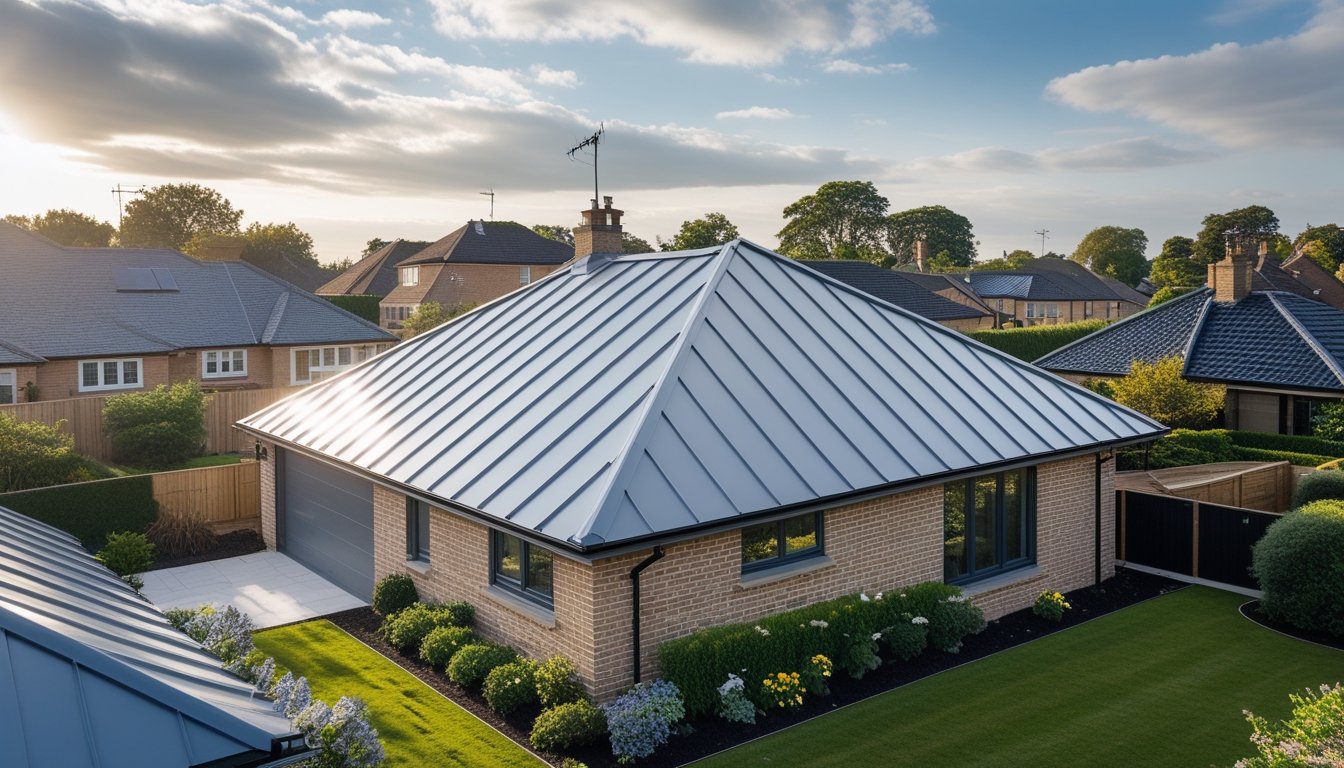
Zinc roofs are becoming increasingly popular in the UK due to their array of benefits. Their durability, aesthetic versatility, and eco-friendly characteristics make them an attractive choice for contemporary architecture.
Exceptional Durability And Longevity
Zinc is renowned for its longevity, often lasting over fifty years, sometimes exceeding a century with proper maintenance. This durability stems from its ability to form a protective patina that resists weathering and corrosion. This self-healing patina enables zinc to withstand harsh weather conditions prevalent in the UK, including rain, wind, and snow.
In addition, zinc's resilience reduces the likelihood of cracks and leaks, providing peace of mind and reducing the need for frequent repairs. This exceptional durability makes zinc an investment that pays off over decades, enhancing the structural integrity of any building.
Low Maintenance Requirements
One of the attractive qualities of zinc roofing is its minimal maintenance needs. Zinc roofs require less upkeep than other roofing materials, mainly because the patina naturally replenishes when it gets scratched, effectively maintaining its protective properties.
Routine cleaning is seldom necessary, as rainwater typically suffices to keep the surface free of debris. This reduces annual maintenance costs and effort. By conserving time and resources on upkeep, zinc roofs deliver value and convenience, making them a preferred choice for busy homeowners and developers.
Variety Of Surface Finishes And Aesthetic Options
Zinc roofs offer a diverse range of surface finishes and colours, such as anthra-zinc, quartz-zinc, natural zinc, and pigmento, each providing unique aesthetic qualities. These finishes offer architects and builders flexibility to integrate roofing seamlessly into different architectural styles, from traditional to modern.
Advanced zinc products like Azengar and Adeka provide distinct textures and visual appeal. This variety allows homeowners and developers to achieve their desired look without compromising on material quality or performance, making zinc an adaptable choice for exterior design.
Energy Efficiency And Eco-Friendly Attributes
Zinc roofing is notable for its sustainability and energy efficiency. The material's reflective properties aid in managing energy consumption by balancing indoor temperatures, reducing the need for excessive heating or cooling. This contributes to energy savings, aligning with the growing emphasis on eco-efficient building practices in the UK.
Zinc is also 100% recyclable, making it a key player in the eco roofing movement. By choosing zinc, we contribute to reducing environmental impact, ensuring that our constructions align with sustainable development goals. This dual emphasis on performance and environmental stewardship underscores zinc's role in responsible construction.
Environmental And Health Considerations Of Zinc Roofing
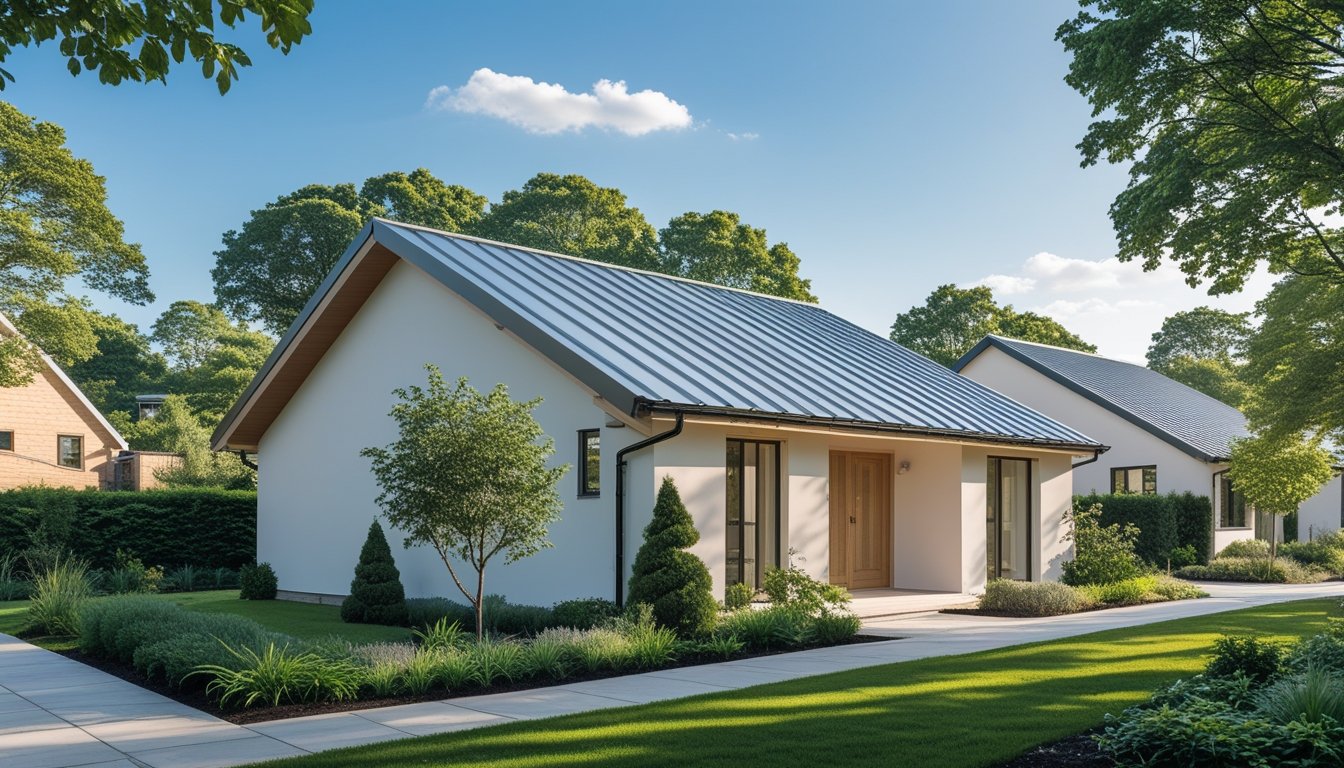
Zinc roofing offers significant environmental benefits through its recyclability and low energy production requirements. Additionally, zinc can play an important role in water management systems and has implications for human health, particularly regarding zinc deficiency.
Zinc In The Environment And Sustainability
Zinc is a standout material in the world of sustainable construction. As 100% recyclable, it reduces waste and contributes to a circular economy. Its production requires less energy than other metals like copper, often found in roofing materials.
In environmental product declarations, zinc consistently ranks favourably for its minimal ecological footprint. This factor is crucial for projects in areas like Croydon and Surrey, where environmental impact is a significant consideration. Additionally, zinc's non-toxic nature ensures that it does not pose significant risks to living organisms or ecotoxicology.
Water Management And Rainwater Systems
The role of zinc in effective water management cannot be overstated. With a non-porous surface, zinc is highly resistant to corrosion and ideal for rainwater systems.
Zinc roofs can help in capturing and directing rainwater efficiently through downpipes and flashings, ensuring a seamless water flow without leaks. This function is critical in areas prone to heavy rainfall. Furthermore, zinc’s performance in these systems matches or exceeds that of other materials, helping maintain environmental integrity.
Human Health And Zinc Deficiency
In terms of human health, zinc’s benefits extend beyond construction. Zinc deficiency is a known health concern, impacting numerous bodily functions.
While our focus is on roofing, it's notable that zinc is essential for immune system support and wound healing. Although roofing materials don’t directly address dietary needs, understanding zinc’s role can raise awareness about its importance in overall health.
In construction, using zinc doesn’t present health risks like those potentially associated with other materials. This ensures safer environments for both installation teams and residents.
Frequently Asked Questions
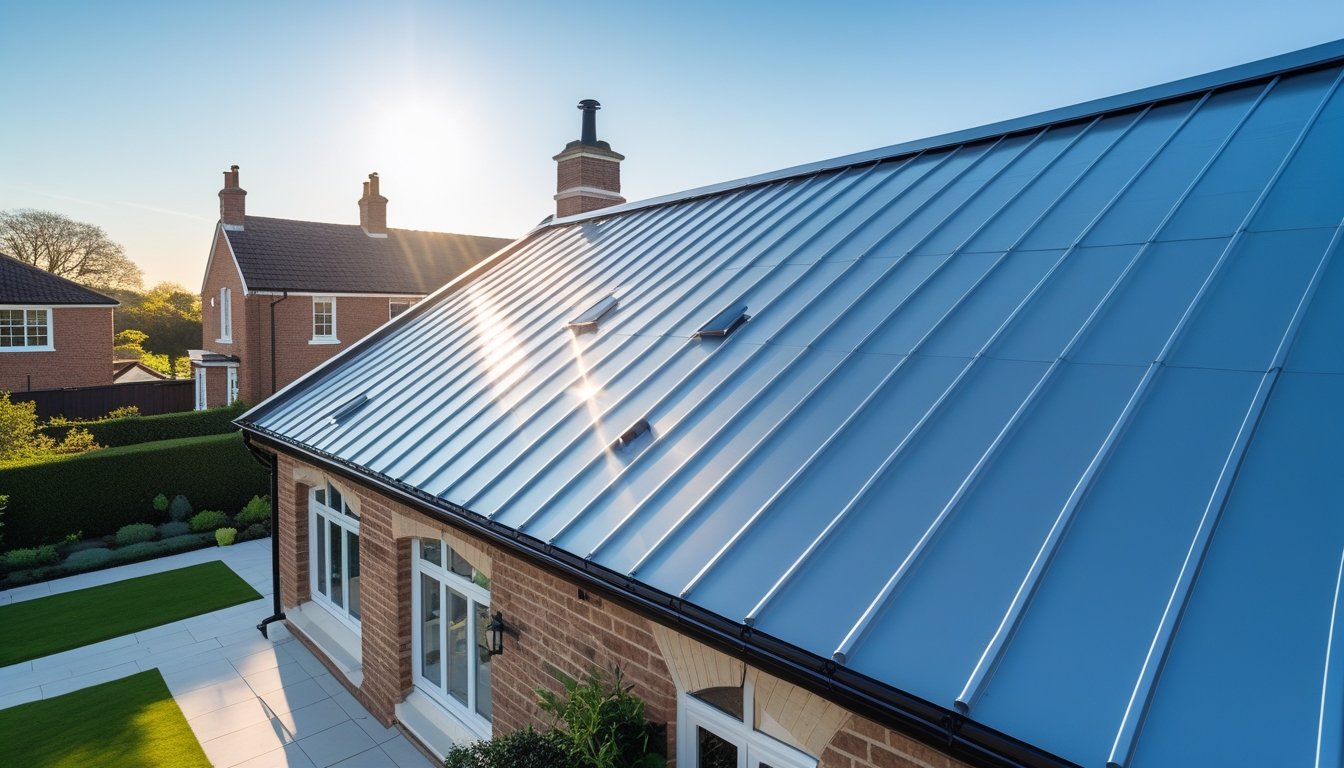
Zinc roofs offer significant advantages for properties across the UK, from their exceptional durability to their environmental benefits. They are particularly suitable for the UK's diverse climate and enhance a building's aesthetics.
What are the advantages of installing a zinc roof on a property?
Zinc roofs are renowned for their durability, requiring minimal maintenance. This longevity makes them an attractive option for homeowners. Additionally, they can enhance property value, making them a smart choice for long-term investment.
How does a zinc roof compare with other roofing materials in terms of longevity?
Zinc roofing can last over a century with proper care. This surpasses many traditional materials like asphalt shingles, offering a longer-lasting solution. Its low maintenance need adds further to its appeal.
What are the environmental benefits associated with choosing a zinc roofing solution?
Zinc is fully recyclable and requires less energy to produce compared to other roofing materials. This reduces its carbon footprint. Its long lifespan minimises waste, contributing positively to sustainable building practices.
Can zinc roofing withstand the varied climate conditions in the UK?
Zinc roofs are well-suited to the UK's climate, including high precipitation and varying temperatures. Their robustness ensures they withstand weather elements effectively, reducing the risk of damage.
In what ways does a zinc roof contribute to the architectural aesthetics of a building?
Zinc's malleability allows for unique design opportunities. Architects appreciate its flexibility, which can enhance a building’s visual appeal with sleek and modern aesthetics.
What are the cost implications of opting for a zinc roof compared to traditional roofing materials?
While initial installation costs for zinc roofing may be higher than some traditional materials, its durability and low maintenance reduce overall expenses in the long run. This makes it a cost-effective investment over time.
